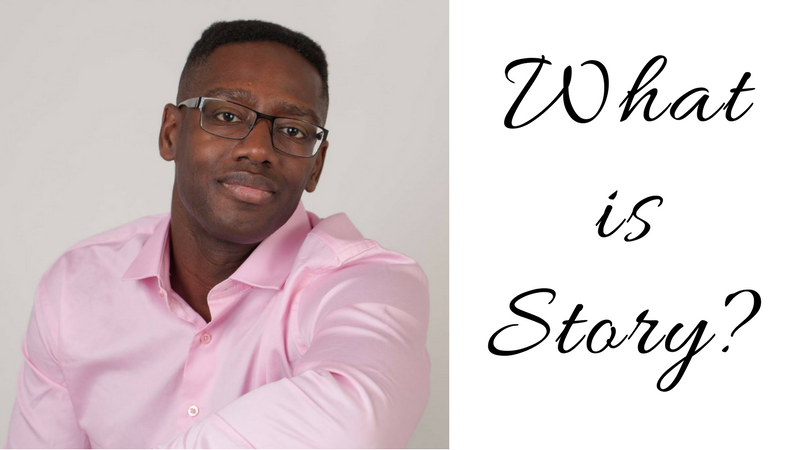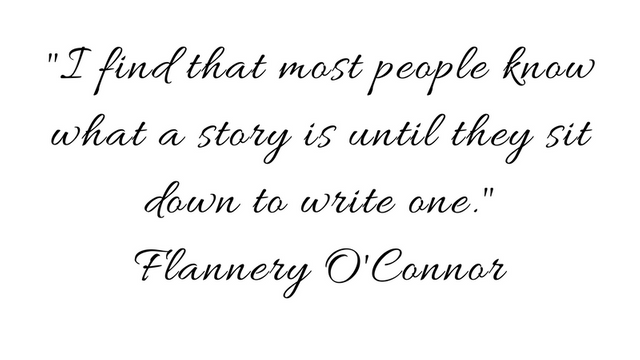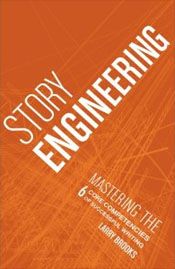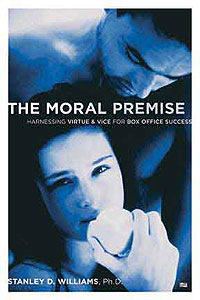A Writer Asked Himself, "What is Story?" This Was His Final Answer...
 As I was preparing to write this (my first post on Steemit), I thought to create a piece on subject I'm passionate about: writing.
As I was preparing to write this (my first post on Steemit), I thought to create a piece on subject I'm passionate about: writing.
But then I remembered an important distinction I learned from Michelle Spiva: the difference between storytelling and writing, that writing a story is part of storytelling.
And because I always like to start at the beginning of things, I asked myself a seemingly absurd question: What is (a) story?
Well, according to Flannery O'Connor, that's probably not such an absurd question:

Well, I thought to myself, Most people probably have an instinctual or subconsious idea of what a story is. It's just that, consciously, some people (including writers) don't know what one is, or how to define one.
I further asked, Why should writers even care what a story is?
Because whether you're a screenwriter, memoirist, lawyer, marketer, novelist, etc., by having a better, more conscious understanding of what story is, your writing will be more communicative, especially if you hold it to the standards that are demanded of a full story.
And, ultimately, that's the goal of this post, to help you write (or tell) better stories.
To that end, I asked myself if I could come up with a simple, universally agreed-upon definition of what a story is.
I considered most things that I believed a story was:
Is Story a Narrative?
Well, what's a narrative?
Some definitions may imply that narrative and story are interchangable terms, but in my view, a narrative has more to do with a worldview. It might be a story that's arrived at, rather than one that's told in linear fashion. It's a story we tell ourselves.
It can also be a collection of beliefs about what things are and how they came to be that way.
So, in some cases, a narrative is enough to be a story. If you're trying to find out why you see yourself, others, or the world the way you do, you may wish to explore your narrative.
What is the unheard story you tell yourself?
Is a Story a Plot?
It's very easy and tempting to see a story as just a sequence of events. In fact, for some plot-oriented writers and the pulp fiction writers of old, this definition may be enough. E.M. Forster wrote about the difference between story and plot, and if this is of interest to you, it's something worth considering.
I would argue that while plot is definitely a part and parcel of most good stories, to say that plot is entirely what story is, is to fall short in our aim as storytellers.
Something deeper runs beneath the plot.
Aren't Stories Fables or Parables?
We can all relate to the lessons learned from parables we heard at Sunday school, Aesop's Fables, and fairy tales.
I would say that with the most meaningful fables, yes, they are stories. They teach a lesson, and even if they don't have deep character arcs that full novels do, they often teach lessons via contrast: person A did B, and got result C; person X did Y, and got result Z.
But, can these fables fulfill the full definition of what a story is?
Well, we're getting there.
If Story Can Best be Defined in one Word, What Would it be?
According to Larry Brooks, author of Story Engineering, that word would be conflict.

And I can see how that makes sense.
It's said that we humans can be resistant to change. Even good change can be difficult, so a lot of humans would almost fight so that things stay the same. Perhaps that's why, when we are forced to change (as many characters are), there can be a lot of resistance. And, even when we do try to change or accomplish something, we're met with external resistance.
From changing one's beliefs, to overcoming an external villian, change and progress can be difficult, and conflict is often part of that difficulty.
Is a Story Something a Lawyer Uses to Convince a Jury?
I think we've all seen it: in an attempt to convince the jury of someone's innocence (or guilt), a lawyer weaves facts and evidence into a well-worded narrative.
This is quite a significant feat, especially if one considers that the jury's conclusion can determine someone's fate.
Quite significant indeed. That's the power of of a well-crafted story, told by a storyteller (in this case, the lawyer) who knows their audience's needs and is rehearsed at delivering that story with as much emotion and persuasion as possible.
It can, in extreme cases, mean the difference between life and death.
Is Story What Lisa Cron Says it is?
Lisa Cron, author of Wired for Story, has said that storytelling is far more than entertainment; that it was, in fact, crucial for our survival as a species. That's because humans learn best through stories, whether via cautionary tales that told us what not to do, or tales that helped us dream of the future.
In the video below, you'll see that Cron helps bring us very close to our goal.
So, according to Cron, story is how what happens affects someone who is in pursuit of a difficult goal, and how that person changes.
I don't intend for this to be a dissertation of Cron's work, but less than a minute later, she goes on to say something I'm not sure about: that story is internal, not external. I would say that a well-crafted story can be both: like a yin-yang dynamic, the characters' inner state can be mirrored by a well-crafted plot.
But I digress.
As you can see, depending on the context, the needs of the audience, and the objective of the storyteller, any of the above definitions may be adequate, but I don't think that any of them, alone, can server as a complete, universal definiton.
Lisa Cron's definition does a good job, but I wonder if I can offer a simpler definition.
So, What's my Final Answer?
At this time, I would say that story is deep, meaningful communication.
If you really think about it, wouldn't you agree that the most profound literature of our time communicate something--a theme, a message, a lesson, or an argument?
Yes, you may have loved the characters, the plot, the surprises, and how the words flowed off the page, but I think that deep down, your favorite movies, plays, and even your favorite video games all said something meaningful to you. You may not be able to consciously state what they meant to you, and that's the beauty of good storytelling--it can communicate to you on a subconscious level. You might not be able to articulate it, but you felt it.
Finally, What's the Takeaway? How Can You Start Implementing This Now?
Since story is deep, meaningful communication, how does one achieve that effect?
Admittedly, entire courses can be dedicated to the craft of meaningful storytelling, and I won't attempt a deep-dive here. However, I will give four steps one must take to move closer to meaningful communication.
First, start with a theme, which can be a message, a lesson, an argument, or anything you want your reader (or listener or viewer) to take away. Or, you may simply not want to say anything, but rather, ask the audience to explore an issue, and that's fine. Theme is part of th lasting effect you want readers to have. (My favorite book on theme is called The Moral Premise, by Stanley D. Williams.)

Second, try to come up with the best way to show the truth of your theme. One way to do so would be to show it in contrast to it's opposite, with the plot confirming the truth of your message.
For example, if your theme is love conquers fear, your plot would show exactly that: it would show how, in the face of one's greatest fear, love is conquerer.
Third, you likely need characters who's actions and/or inner beliefs are either on the side of your truth, or the other side. Or, you can show how one character changes from one side to the other, from fear to love. That's partially what a character arc or growth arc is--it shows how a person changes. At the beginning, they're on the side of fear, but at the end, we see how the truth of your message has changed them, and helped them to become a better person.
Fourth is plot. In a well-planned story, the plot would help to illustrate the theme, reveal characters and show how characters change (or don't change).
In conclusion, asking myself, What is story took me on a short journey that led to the answer that story is deep, meaningful communication. Although this definition is probably a bit abstract, it is, in my opinion, good, fertile ground for planting the seeds of that will bear the fruit of great storytelling.
Atrributions
Thumbnail image and O'Connor image created for free in Canva.
Story Engineering cover image taken from StoryFix.com.
Wired for Story cover image snapped from WiredforStory.com.
The Moral Premise cover image from MoralPremise.com.
Wow! You sure came up with a lot of food for thought. The line "What is the unheard story you tell yourself?" is enough to write several books about. Don't get me started about this.
I like your definition of deep, meaningful communication, but I'd add the concept of change. It could be included in Larry Brooks' idea of conflict or Lisa Cron's suggestion that change is part of story when someone is in pursuit of a goal.
I suppose the phrase 'deep, meaningful communication' automatically includes change - otherwise it wouldn't be meaningful - right?
We could go on and on, but loved your post. It gave me lots to think about and I love thinking and re-thinking concepts. Thanks.
Thanks, @katebenzin, for your thoughful reply. When I reply to posts, I usually try to add something reflective to show the poster and others that I've truly read it and digested it. And, if I can, I try to further the conversation or add an insight or twist of my own.
I'm glad that line, What is the unheard story you tell yourself struck a chord with you. I was hoping it would cause reflection in some.
Nice first post. And I thought a story was just a good read. What was I thinking. :)
Stories can, on the surface, seem like a nice short read, and all good ones deliver that, but very good ones go a bit deeper than that.
And with your definition here, you have truly created deep, meaningful communication.
A beautifully crafted piece. Thank you and I look forward to more from you!
I caught your link in 17in17 but my application had not yet been approved. I read it, and enjoyed, and can now follow you here... You've produced a well organized, thoroughly researched and documented piece, here. If this is a sample of your other work, I'll be following that with interest, too. --One of the first things they stress in schooling for sales copy is that Stories sell! You've neatly nailed down the reason WHY!
Good work, young man. We'll be watching you!
Thanks @auntkaty!
I shall always do my best to strive to create great content.
If you notice some of the most successful people in the world are great story tellers. Everyone loves a great story. Thanks for the reminder!
Yes, indeed. Storytellers can be some of the most influential people in the world. I hope this post testifies to that.
Reading the title of your article, I didn't think it would take long to discuss what a story is. However, as you went deep into the subject I realized just how complex explaining the definition can be. I like your outcome, though. Deep, meaningful communication sounds like a good choice!